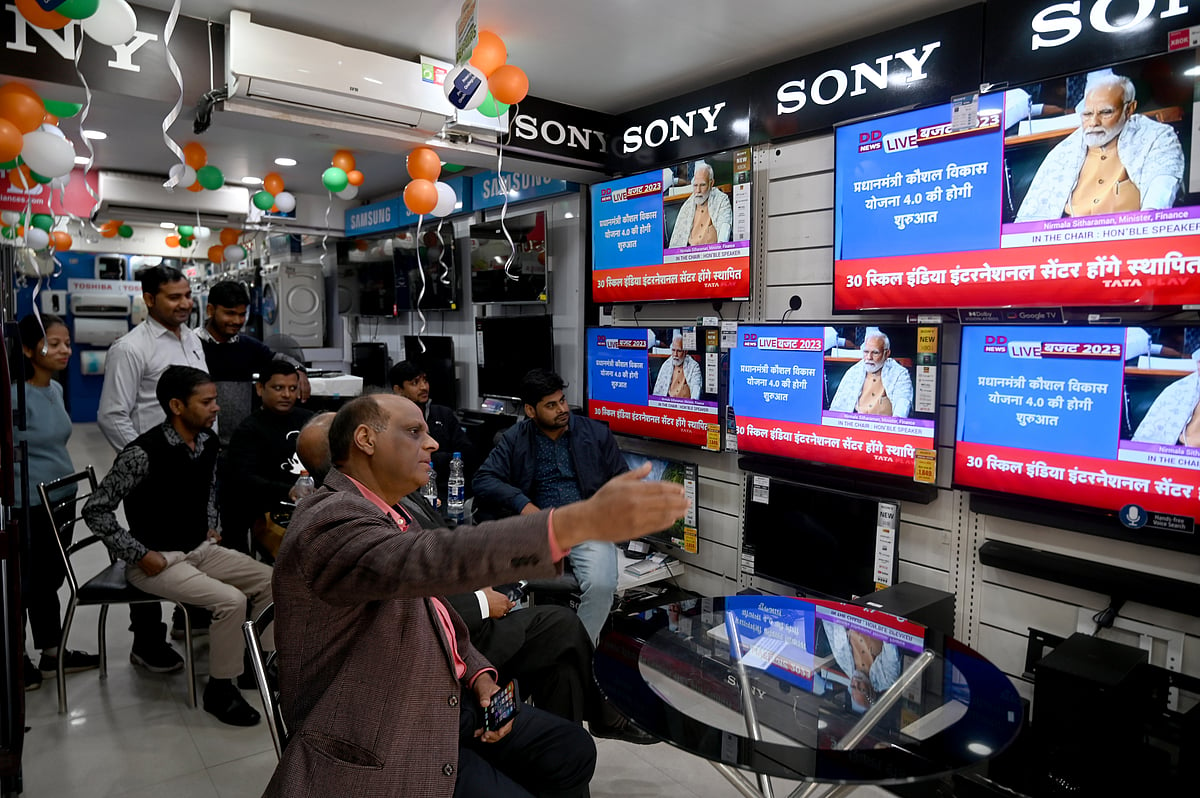Why the Opposition’s media boycott makes perfect sense…
…given the clear evidence of bias in the national media

The Opposition bloc of the Indian National Developmental Inclusive Alliance (INDIA) has announced the names of 14 anchors whose programmes their spokespersons will boycott. No reason was cited when the list was put out, but various Opposition leaders have said this was the ‘WhatsApp group of BJP media cell’.
The arguments against the boycott are various, including freedom of press and the ‘Emergency’. So, in order to validate the objections, let us look at what evidence we have to suggest that some anchors and TV stations act as extensions of the government in the first place.
On 19 June 2020, NDTV correspondent Arvind Gunasekar tweeted the text of a note that the government had given to journalists as ‘talking points’ after an all-party meeting on the Chinese intrusion. This was the meeting in which Modi claimed that there had been no intrusion by China.
The talking points the Modi government wanted the media to focus on in their headlines included: 'India stands solidly behind PM. Most leaders express their confidence in way Modi Govt has handled the situation’ and 'Congress efforts to create wedges trashed by KCR, Naveen, Sikkim Kranti Morcha'.
The channels obeyed the instructions. The prime-time debate for Times Now a few hours later was headlined: ‘All parties unite behind India but Sonia Gandhi won’t slam China?’ Republic TV’s main debates on 19 June were headlined: ‘Unarmed with fact, Congress insults Army’; ‘Is there a “special relation” between Congress and China?’ and ‘People’s movement against China gets bigger’.
For my book Price of the Modi Years, which is being republished in paperback in September 2023, I looked at the two top English news channels. What were the subjects of their prime-time debates in this period when there was a Chinese intrusion and the economy was contracting because of the lockdown?
Also Read: The Modi Years: He came, he saw, he ravaged
In the months of May, June and July, Times Now had 33 prime-time debates which criticised the Opposition’s actions. It had none that criticised the Modi government. There were zero debates on the economic recession. In the same three months, Republic TV had 47 debates that criticised the Opposition’s actions. It had none that criticised the Modi government’s actions and none on the economic recession.
This was a period in which, between 7 June and 27 June, the price of petrol/diesel was hiked every single day for 21 days. On 16 June, India announced that it had lost 20 soldiers, who were bludgeoned to death in hand-to-hand combat with the Chinese in Ladakh. Daily Covid infections rose from 2,300 cases on 1 May to over 57,000 cases daily by 31 July. But note the focus of the ‘debates’.

A few days later, the Indian Journalism Review published another note that the Prime Minister’s Office had circulated to channels, instructing them on what to focus on.
The note read:
Modi Effect loud and clear. Taming expansionist China is a herculean task but the right strategies and actions can yield to (sic) outstanding results. China hasn’t pulled back. China has been pushed back, by a united nation led by a leader who led from the front. By taking decisive military, economic and strategic moves, PM Modi has pushed back China. The notion of economic infallibility of China has received a tight slap with the PM’s clarion call of Aatmanirbhar Bharat.PMO, India, reproduced in the 'Indian Journalism Review'
Times Now responded with debates headlined:
‘PM Modi punishes expansionist China, doubters put to shame?’
‘China admits it was pushed back, will army doubters surrender?’
‘China admits push back but Lobby continues to lie?’
And Republic with:
‘Prime Minister leads from the front’
‘PM Modi’s strong leadership pushes back China’
‘Ladakh reality check: Galwan victory a slap in Lobby’s face’.
Others have looked at the data and arrived at similar numbers.
In a study published at the end of 2020, political scientist Christophe Jaffrelot and data analyst Vihang Jumle examined Republic’s content. They wrote in Caravan magazine:
We studied all prime-time debates held since the channel was launched in May 2017 until April 2020, when we began the study — 1,779 in all. Our conclusion was clear: Republic TV’s debates have been consistently biased in favour of the Modi government and its policies, as well as the ideology of the BJP.
What’s worse, these debates have rarely featured some of the most pressing issues that impact Indians, such as the state of the economy, education or health. Instead, they have consisted mostly of attacks against the Opposition as well as any groups or persons that oppose the ruling government’s ideology.
Some figures are staggering, if unsurprising. Nearly 50 per cent of Republic TV’s political debates criticised the Opposition, but it has not conducted even one debate that we could classify as being in the Opposition’s favour.
To return to the question we began with: What is the evidence we have to suggest that some anchors and TV stations act as extensions of the government? The evidence is quite clear for anyone who wants to seek it.
There is absolutely no question that the Opposition is correct in having concluded that it is being asked to play a rigged game by large sections of the media. It has every right to refuse to be a part of this.
One hopes, though one is not optimistic, that this action to some extent corrects the lunacy which has infected our national media and has damaged our nation.
Views are personal
Follow us on: Facebook, Twitter, Google News, Instagram
Join our official telegram channel (@nationalherald) and stay updated with the latest headlines
